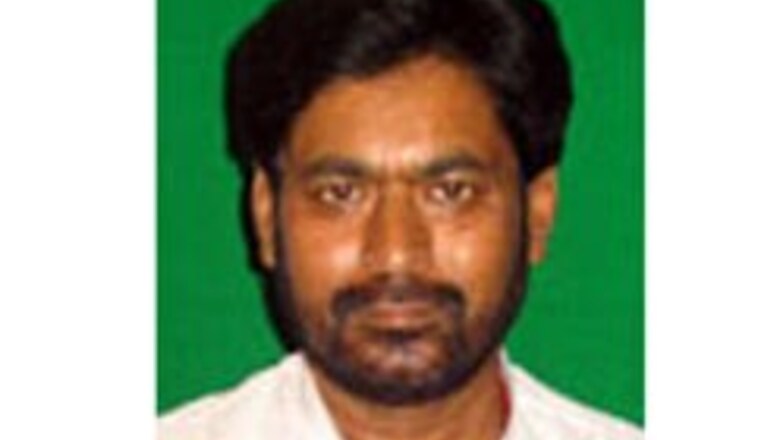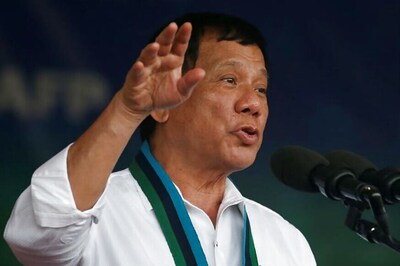
views
New Delhi: The latest cabinet reshuffle seems to carry as much the imprint of the Prime Minister as of the Congress President so far as the choice of the Congress leaders is concerned. But when it comes to the selection of ministers from outside the Congress, the evident application of a different yardstick implies that neither Manmohan Singh nor Sonia Gandhi had much elbowroom.
As much is clear from the appointment of the tainted Jaiprakash Narayan Yadav of the Rashtriya Janata Dal as a Minister of State for Water Resources. This choice is in striking contrast to the selection of the Congress's perennial Mr Clean, A K Antony, as the Defence Minister.
While the latter may be able to refurbish the image of a ministry which has had to deal with one scam after another from the time of the Swedish Bofors howitzer scandal in the late 1980s to the latest one relating to Israeli Barak missiles, Yadav's inclusion in the Government is a sad reminder of the Prime Minister's susceptibility to coalition compulsions.
Yadav had to resign last year following the issue of a non-bailable warrant against him by the Bihar Police because of his alleged involvement in the escape of his brother from policy custody. Since then, he has been able to extricate himself from his legal tangles. But that hasn't helped him to improve his reputation as a typical example of the gangster-types who dominate politics in the Hindi heartland.
It is obviously his mentor, Railway Minister Lalu Prasad, who has secured his nomination. However, the episode cannot but leave a bad taste in the mouth.
Where the Prime Minister's own party is concerned, he is on much firmer ground. The choice of Pranab Mukherjee as the External Affairs Minister was unavoidable because the outgoing Defence Minister had evidently emerged as a person whom both Manmohan Singh and Sonia Gandhi could trust for political acumen, administrative skill and sane advice.
PAGE_BREAK
It is for this reason that Mukherjee has gradually emerged as the virtual No. 2 in the Union Cabinet, leaving other heavyweights like Human Resource Development Minister Arjun Singh and Home Minister Shivraj Patil way behind. While the clever Arjun Singh is apparently looked upon with disfavour because of his latent ambitions, the less complicated Patil hasn't helped his own case because of his lacklustre performance in his ministry.
Mukherjee was apparently unwilling to become the External Affairs Minister because he felt that he wouldn't enjoy the same freedom of action that he did as the Defence Minister. In India, ever since Jawaharlal Nehru took a special interest in foreign policy, this portfolio has generally been under the aegis of the Prime Minister's office.
Even during the tenure of the previous regime, Atal Bihari Vajpayee was the de-facto foreign minister although the post was held by Jaswant Singh or Yashwant Sinha.
In Mukherjee's case, since his No. 2 position is unlikely to be disturbed, the External Affairs Ministry may well acquire some kind of a special status, of which the foreign governments will not be unaware.
Although Mukherjee will have to keep in mind the special interest the prime minister takes in the nuclear deal with the US and on negotiations with Pakistan, there is little doubt that he will bring a more focussed approach to his assignment.
Evidence of this attitude was available during his recent visit to the US when he referred to Pakistan as the 'nursery' of terrorism at a time when the two countries were treading cautiously in the matter of evolving a joint mechanism to combat terror.
There is every possibility that Mukherjee will gain further in stature during his stint at the External Affairs Ministry. What is more, it might help him in his home state of West Bengal, where a Bengali foreign minister will be regarded with special esteem.
Similarly, Antony's elevation as the Defence Minister is of not inconsiderable significance in Kerala politics, where K Karunakaran's secret sympathisers in the Congress may well realise the futility of their leader's rebellion against Antony.
Since some of these appointments are meant more for their regional impact than for one at the centre, the choice of M H Ambareesh as the Minister of State for Information and Broadcasting can only be seen in the context of the role he is expected to play as a backward Vokkaliga leader to counter the ruling Janata Dal-Secular-Bharatiya Janata Party alliance in Karnataka.
Of the others, Oscar Fernandes's induction as the Minister of State for Labour cannot but be seen as a reward for his loyalty to Sonia Gandhi while the additional charge of the northeastern region given to the usually talkative Mani Shankar Aiyar may well be a reward for his silence despite being deprived of the Petroleum Ministry.
As during all such occasions, the subject of Rahul Gandhi's role remains uppermost in everyone's mind. For the present, the putative heir-apparent is a freelancer. Whether he will remain so after the Uttar Pradesh elections early next year is the million-dollar question.




















Comments
0 comment